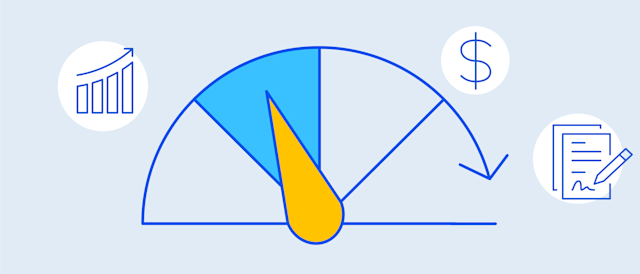What is a Charge-Off?

Summary
Struggling with charge-offs on your credit report? Find out what it means and how you can address them for the least negative impact on your credit.
In this article:
If you’re finding yourself in a difficult financial situation lately, rest assured, you are not alone. Every day, hard-working Americans face unexpected hurdles that impact their finances. Meeting routine expenses such as monthly car payments, credit card and loan payments, mortgage and rent, education and health care costs becomes challenging and even overwhelming.
Credit experts predict that a long-term economic downturn could potentially create a spike in charge-offs, also known as charged-off accounts.1
What is a charge-off?
A charge-off is a account status given by lenders to a debt that is unlikely to be collected. Charge-offs typically happen when a borrower falls significantly behind on their payments, and the lender determines that the chances of recovering the full amount are low. In most cases, a debt is charged off after it remains delinquent for about six months or 180 days. However, the specific time frame can vary depending on the lender's policies and the type of debt.
The long-lasting effect of charge-offs on your credit report
The fact is, a charge-off doesn’t make the problem go away.
When a creditor charges off a loan, they are writing off the outstanding debt as uncollectable and reporting it to major credit-reporting agencies – potentially affecting your credit score. For customers, this adds a layer of frustration. After all, a charged-off account could stay on your personal credit report for up to seven years and can make obtaining future credit more difficult.
It's important to note that even after a debt is charged-off, the borrower remains responsible for settling the debt, whether through repayment negotiations with the lender or by working with a collection agency. To lessen its impact, borrowers should take proactive steps to handle and resolve charged-off debts to minimize the long-term financial consequences.
Can my account be charged off even if I’ve been making payments?
Yes, your account can be charged off despite making payments. If a creditor sees a trend of repeat missed payments or failure to meet the agreement terms, and believes there's a significant risk of not recovering the full debt amount, a charge-off status can be placed on your account. Open communication with the creditor and exploring repayment options can help to prevent this.
What kind of debt can be charged off?
Creditors can charge off various types of debt, including credit card debt, personal loans, medical bills, auto loans, student loans (private), mortgages and unpaid utility or service bills.
Can I remove a charge-off from my credit report?
It's challenging to remove a legitimate charge-off from your credit report. However, you can work on rebuilding your credit over time by making on-time payments and managing your finances responsibly.
Proactively protect your credit
You have several options to help avoid the possibility of a credit charge-off. The sooner you act, the healthier the financial outcome might be. Consider calling your lender or debt collector to discuss how you can pay a lump sum to get your account current and move your debt out of collection.
If you can’t pay off your balance, even at a reduced sum, ask for a debt repayment plan. Look at other financial options, such as debt consolidation, that may help you pay other debts, reduce monthly payments and free up cash. If you're considering signing-up with a credit counseling agency, review this advice from the Federal Trade Commission.
Make the right call
Most importantly, don't be afraid to pick up the phone. Remember, creditors would much rather find a solution that works for both sides, and they are having these conversations with people every single day. Lenders like OneMain carefully examine the whole situation to determine their course of action.
Once you work out a plan, you will breathe a sigh of relief. The volume of letters and phone calls will stop, and you can move forward with less financial stress and be able to concentrate on taking other positive actions to protect your family and finances.
1. Fitch Ratings Prime Credit Card Charge-offs Quarterly Average Up 7% in 4Q23
This article is for general education and informational purposes, without any express or implied warranty of any kind, including warranties of accuracy, completeness, or fitness for any purpose and is not intended to be and does not constitute financial, legal, tax, or any other advice. Parties (other than sponsored partners of OneMain Financial (OMF)) referenced in the article are not sponsors of, do not endorse, and are not otherwise affiliated with OMF.



